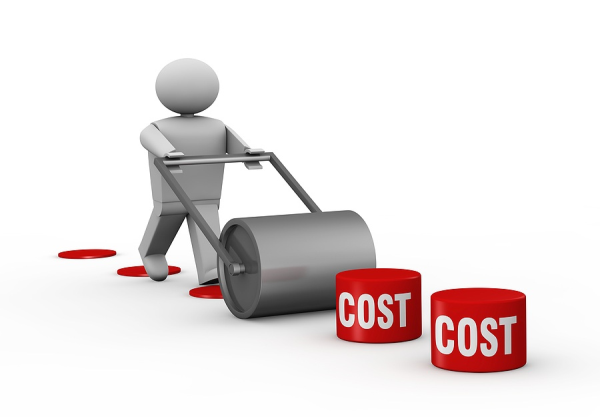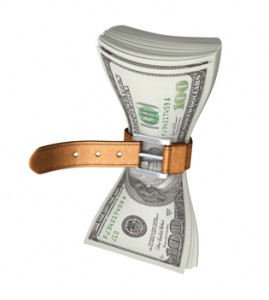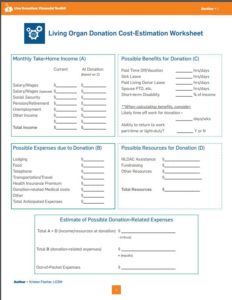
Studies show that living donors may spend an average of $5,000 related to their donation — these include direct and indirect costs. A strong consensus exists to support a financially neutral impact to a live organ donor’s contribution to humanity.
To that end, the Live Donor Community of Practice of the American Society of Transplantation, along with the support of eleven other organizations, looked at systemic and financial barriers to living donation and developed a toolkit to give potential living donors financial resources to assist in making informed decisions about the donation process in advance of donation.
Areas that may financially impact living donors and care providers might include:
• The loss of wages associated with recovery time and testing procedures
• Transportation to the transplant center for testing, surgery and follow-up care
• Food, lodging, and incidentals for donation-related visits
• Paying for alternate caregiving plans – child care, elder care, pet care
• Forfeiting vacation time, holidays, sick days or FMLA for time off work
• Denials when purchasing disability or life insurance—or paying higher premiums.
• Job security concerns for employers who may not work absences associated with donation
• Uncovered medical expenses, which may vary by transplant center and by insurance contract. *(Potential donors should explore coverage of donor complications and follow-up).
This article contains considerable content excerpts from American Society of Transplant. See full details at this link: https://www.myast.org/sites/default/files/AST-16-Financial-Toolkit-Section-Intro.pdf
View sample cost-estimation worksheet pdf at MyAST link: https://www.myast.org/sites/default/files/AST-16-Financial-Toolkit-Section-1-Cost-Estimation-Worksheet.pdf
Financial Assistance Programs:
The National Living Donor Assistance Center (NLDAC) is a government funded program that provides financial assistance to eligible living donors for their travel expenses to the transplant center. Approved donors receive a special American Express controlled value card to pay for transportation, food, and lodging up to a total of $6,000. NLDAC will also pay for up to two trips for the donor’s support person(s). Eligibility is based on the recipient household yearly income, which should be no greater than 300% of the federal poverty guidelines (FPG). If the recipient household has an income greater than 300% of the FPG, a waiver for financial hardship may be requested. For complete 2016 information, see the NLDAC Brochure.
Learn more here: https://www.myast.org/sites/default/files/AST-16-Financial-Toolkit-Section-2-NLDAC-How-to-Apply.pdf


